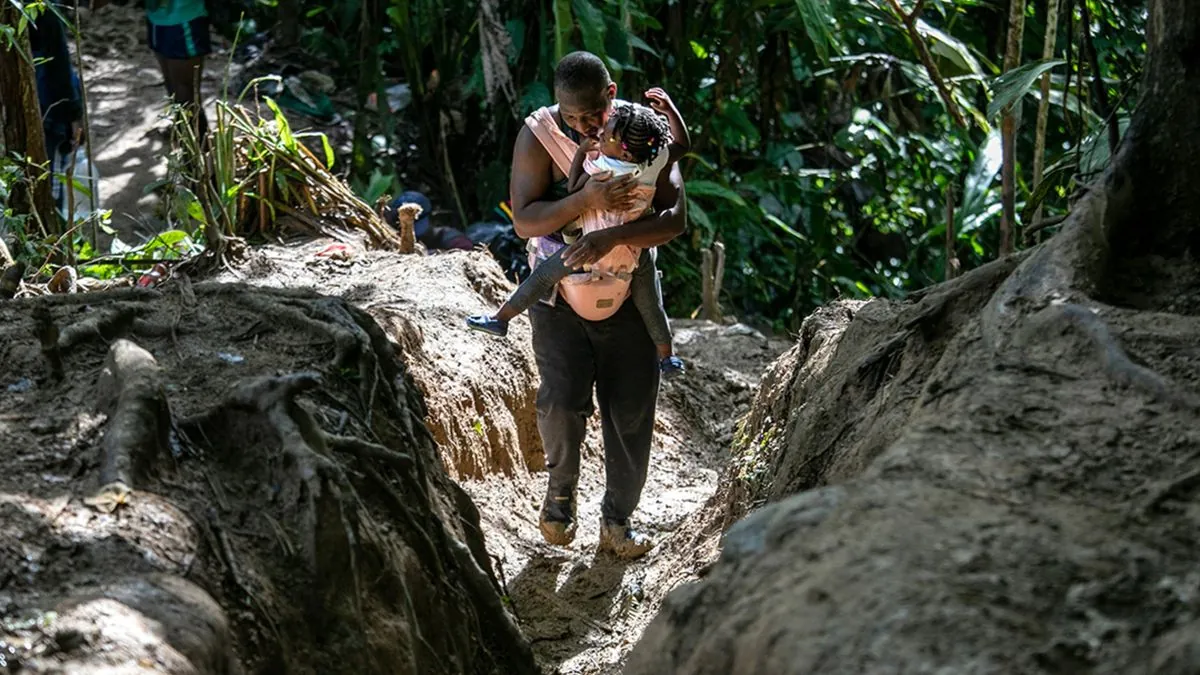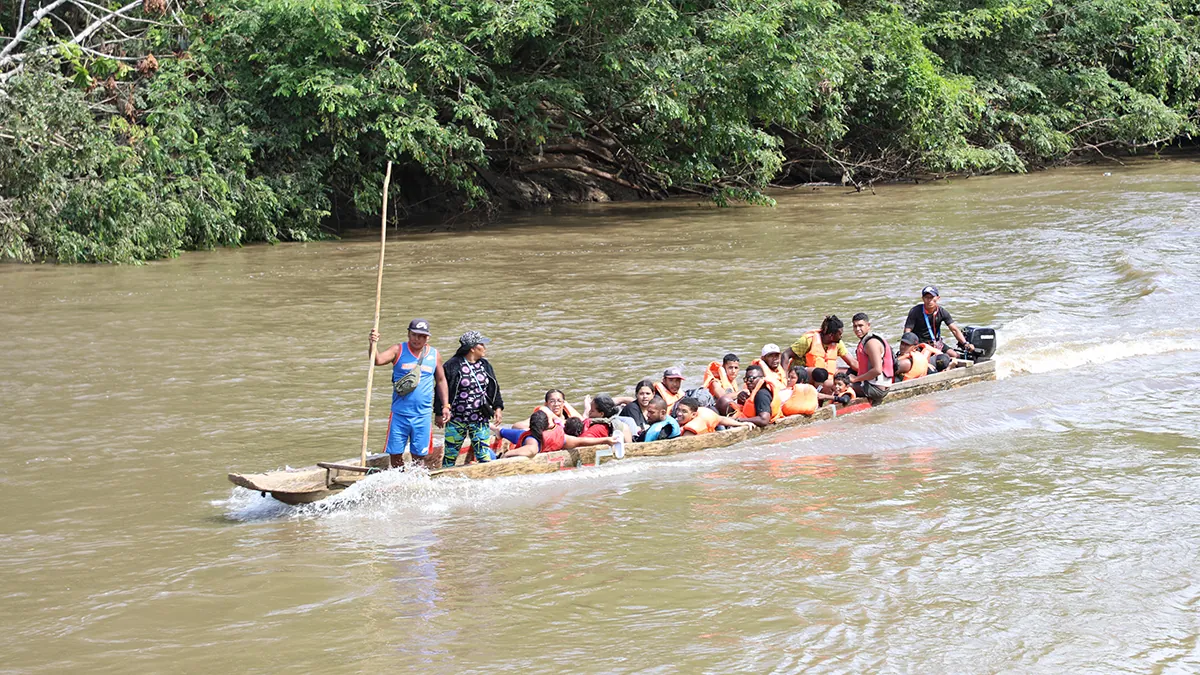Venezuelan Exodus Through Darien Gap Surges After Disputed Election
Venezuelans brave perilous Darien Gap journey following contentious election results. Migrants cite loss of hope and economic despair as reasons for fleeing, despite dangers of jungle crossing.

The Darien Gap, a treacherous 160 km stretch of jungle between Panama and Colombia, has become a symbol of desperation for Venezuelan migrants seeking a better life. Following a disputed presidential election in July 2024, which saw Nicolás Maduro claim victory despite opposition claims of a landslide defeat, many Venezuelans have lost hope for change in their homeland.
Enrique Dordis, a 46-year-old former cab driver from Carabobo state, exemplifies this sentiment. Along with his family, including an 8-year-old son, he embarked on the perilous journey through the Darien Gap. "We stayed waiting for the election (results) because if Maduro left (power) then we would stay. But nothing happened," Dordis explained from a tent in the Lajas Blancas camp.
The Darien Gap crossing, considered one of the most dangerous migration routes globally, has seen a surge in Venezuelan migrants. In 2023, over 500,000 people traversed this jungle passage, with more than 60% being Venezuelans fleeing economic and political turmoil. This mass exodus is part of a larger trend that has seen over 7 million Venezuelans leave their country since 2015.

Venezuela's economic decline has been staggering. Once Latin America's wealthiest nation due to its vast oil reserves, the country has experienced a GDP contraction of over 75% since 2013. Hyperinflation reached a staggering 1,000,000% in 2018, and the minimum wage is now among the lowest in the region. These economic woes have led to severe food shortages, with the average Venezuelan losing about 11 kg in body weight in 2017.
The journey through the Darien Gap is fraught with dangers. Migrants face risks from wildlife, including venomous snakes and jaguars, as well as threats from armed groups and drug traffickers. The trek can take up to 10 days on foot, with migrants battling harsh terrain and unpredictable weather.
Rosimar Angulo, another Venezuelan migrant at the Lajas Blancas camp, expressed her disappointment: "We feel very disappointed after the election, which was a total fraud." The sentiment is echoed by many who held out hope for political change, only to be disillusioned by the election results.
The humanitarian crisis extends beyond the jungle crossing. Venezuela's healthcare system has collapsed, with shortages of basic medicines. This breakdown of essential services has further fueled the exodus, as people seek not only economic opportunities but also basic survival necessities.
Despite efforts by Panama and Colombia to limit daily crossings, the flow of migrants continues. The Red Cross provides crucial humanitarian assistance to those making the journey, but resources are stretched thin.
As Venezuela grapples with its ongoing crisis, the Darien Gap has earned the grim moniker of the "new death route" for migrants. Yet, for many Venezuelans, the risks of the jungle pale in comparison to the hardships they face at home. The journey through this UNESCO World Heritage Site area represents a desperate bid for a future that seems increasingly out of reach in their native land.
"For us, the same government winning again means there will be no improvement in the country."
As the situation in Venezuela remains uncertain, the flow of migrants through the Darien Gap serves as a stark reminder of the human cost of political and economic instability. The journey may be perilous, but for many Venezuelans, it represents their only hope for a better future.


































